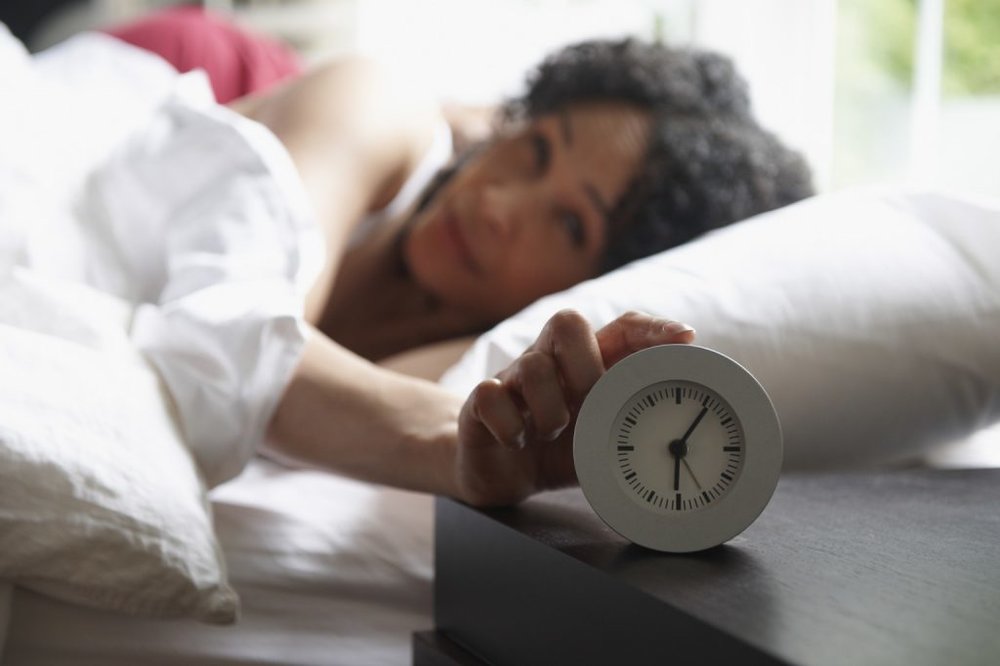
Sleep Deprivation Reason And Not Symptom of Mental Health Conditions


Sleep Deprivation Is Common Among People Suffering from Mental Health Conditions.
A new study from the United Kingdom has revealed that a therapy program available online and designed to deal with insomnia, also has the capability to reduce depression and anxiety. Sleep deprivation is quite common among people that are suffering from mental health conditions, which may include anxiety and depression. Sleep deprivation was often considered as a symptom of depression or anxiety, but latest findings are suggesting that the reverse could be true. Mental health conditions have the potential to develop because of sleep deprivation.
Can Sleep Deprivation Lead To Mental Health Issues?

The Quality of Sleep We Get Has An Effect On Our Mental Health.
The quality of sleep we get may have a role to play in our mental health, according to Daniel Freeman, lead study author who is a professor of clinical psychology at the University of Oxford. Freeman made a statement that if people can sort out their sleeping patterns, they may perhaps be taking a significant step forward to tackle a wide range of emotional and psychological issues.
The new study was published on September 6, 2017, in the Journal The Lancet Psychiatry, after conducting research on more than 3700 British students that were suffering from insomnia. The average age of students was 24 when they were considered as participants. The participants were asked to complete questionnaires regarding their sleep and any other mental health conditions, some of them were dealing with paranoia, anxiety, hallucinations, and depression. The questionnaires were provided to the students at the beginning of the study, after three weeks and again after 10 weeks, when the treatment was concluded. After 12 weeks, the participants were again asked to complete the questionnaires finally.
The participants in the study were assigned randomly either to the treatment group or the control group. Students in the treatment group were required to participate in a program of cognitive behavioral therapy which was conducted online. CBT generally focuses on the thinking of people and tries to help them challenge their thoughts and beliefs. Insomnia is a specialized version of CBT, also known as CBT-I and is considered as a first-line of therapy for people who may be suffering from insomnia for a month or longer. This information was provided by the American College Of Physicians. The participants assigned to the control group were not required to participate in cognitive behavioral problems.
What Did The Study Reveal?

Cognitive Behavioral Therapy Helpful For People Suffering from Sleep Deprivation.
When undergoing CBT in the online program, which required participants to be involved in a 20 minute long sessions, six times they were also asked to maintain a sleep diary as well as practice behavioral techniques of certain types, while also learning about the benefits of healthy sleep. The program tailored its advice to every participant after obtaining data from the sleep diaries they were asked to maintain.
At the end of the treatment, after 10 weeks, the researchers discovered that the participants in the treatment group reported less insomnia, hallucinations as well as fewer incidents of paranoia as compared to the students in the control group. Apart from the improvements seen in insomnia, hallucinations, and paranoia the researchers also noticed that the participants in the treatment group had reduced levels of depression and anxiety and had improved their psychological well-being. This was in stark contrast to the people in the control group. Analyzing further, the researchers concluded that improved sleep patterns also brought along a 60% decrease in paranoia levels.
The study conducted, provided significant evidence that sleep has an important role to play in mental health and the medical fraternity should take note of this factor and consider it as a priority to improve the sleep of their patients, when approached for treatment of mental health conditions.

Insomnia Cannot Be Trivialized As Just A Symptom of Mental Health Conditions.
Freeman has also mentioned that insomnia has been trivialized merely as a symptom of mental health conditions of various types. However, insomnia also has the potential to be part of a complex package of reasons that can give rise to mental health conditions.
Despite the study, providing some evidence about sleep deprivation proving to be detrimental enough to cause mental health conditions, researchers also noted that the study had some limitations. Some of the participants did not complete the study and therefore it would be difficult to assume whether the findings could be applied to a larger group. Researchers also observed that some of the participants had reported their symptoms by themselves without maintaining the diary that was requested which they found it was an unreliable method.
Eventually, researchers have concluded that most studies need to be conducted to understand the precise time the effects of online CBT therapy can last.
More in Motivation
-
`
Is Swimming in Cold Water Good for You?
Swimming is a beloved activity that provides numerous physical and mental health benefits. Swimming can be a fantastic workout, whether you’re...
November 15, 2023 -
`
Unlocking the True Benefits of Detox Water
Detox water has taken the health and wellness world by storm, promising a wide range of benefits that go beyond ordinary...
November 7, 2023 -
`
How Tom Brady Shed 10 lbs After Retirement
One of the NFL’s most celebrated athletes, Tom Brady, has always been a topic of discussion. Brady never fails to surprise,...
November 1, 2023 -
`
AI’s Hidden Toll on Our Brains
Artificial Intelligence (AI) has permeated almost every facet of our lives, from virtual assistants and recommendation algorithms to autonomous vehicles and...
October 24, 2023 -
`
What to Drink During a Workout
When it comes to getting the most out of your workout, proper hydration is key. What you drink during exercise can...
October 17, 2023 -
`
Wearable Technology Applications in Healthcare
The world of healthcare is evolving at an unprecedented pace, and wearable technology is one of the driving forces behind this...
October 10, 2023 -
`
Initiating and Integrating Exercise in Daily Life
Incorporating exercise into our daily lives is essential for maintaining optimal health and well-being. However, initiating a fitness routine and seamlessly...
October 10, 2023 -
`
Jason Momoa’s Workout Routine for Iconic Aquaman Look
We all remember the moment: The big screen lights up, waves crash, and out emerges Jason Momoa as Aquaman, with his...
October 8, 2023 -
`
Crying: The Benefits on Mental Health
In a world that often champions stoicism and emotional restraint, shedding tears is sometimes dismissed as a sign of vulnerability. However,...
September 26, 2023















You must be logged in to post a comment Login